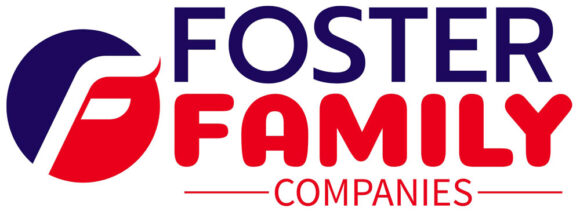Streamlining Operations: The Operational Efficiency of IFM

Integrated Facilities Management (IFM) has emerged as a transformative approach to optimizing resources, reducing operational inefficiencies, and enhancing workplace productivity. Businesses today operate in fast-paced, competitive environments where managing multiple facility-related functions independently can result in unnecessary costs, wasted time, and fragmented operations. IFM offers a unified strategy by consolidating all facility management services under a single, streamlined framework. This approach leverages efficient facilities management practices and integrated building services to maximize organizational performance while aligning infrastructure management with business objectives.
In this blog, we will explore how IFM drives operational excellence, the role of integrated building services, the technological innovations reshaping the industry, and how businesses can harness IFM to achieve streamlined operations across their organization.
Understanding IFM and Its Role in Efficient Facilities Management
Integrated Facilities Management involves combining multiple services — such as maintenance, cleaning, security, energy management, and workspace optimization — into a single, coordinated system. Traditionally, businesses outsourced individual services to different vendors, resulting in disconnected workflows and inconsistent quality. IFM resolves this by assigning one provider to oversee all operations holistically.
Efficient facilities management is at the core of IFM, focusing on reducing operational redundancies while maintaining or improving service quality. By centralizing oversight, organizations gain better control over budgets, eliminate duplication of services, and ensure compliance with safety and sustainability standards. This integration not only simplifies vendor coordination but also establishes transparent reporting structures, empowering leadership to make data-driven decisions.
For example, a large corporate campus using IFM can seamlessly manage HVAC maintenance, security patrols, and janitorial services under one operational framework. This consolidated approach ensures service consistency, faster issue resolution, and reduced operational costs — all critical to maintaining business continuity and improving employee satisfaction.
The Impact of IFM on Streamlined Operations
One of the most significant advantages of IFM is its ability to deliver streamlined operations by eliminating inefficiencies inherent in siloed facility management. When multiple service providers operate independently, communication gaps, duplicated tasks, and misaligned objectives often arise. IFM addresses these challenges by creating a unified system where responsibilities are clearly defined, processes are standardized, and accountability is centralized.
Streamlined operations lead to optimized workflows, faster turnaround times, and improved service delivery. For example, if a facility experiences an electrical outage, the IFM model enables immediate coordination between the electrical maintenance team, safety personnel, and building management. Instead of navigating through multiple vendors and contracts, the centralized system accelerates problem resolution, reducing downtime and enhancing productivity.
Moreover, IFM fosters improved collaboration between business units and facility managers. With unified reporting and performance tracking, decision-makers can identify recurring issues, implement preventive measures, and better align facilities strategies with organizational goals. This level of integration transforms facilities from being mere support functions into active enablers of business growth.
Leveraging Integrated Building Services for Better Performance
Integrated building services are a core pillar of IFM, combining various operational components into a cohesive framework. These services encompass energy efficiency, security systems, maintenance schedules, space optimization, and sustainability initiatives — all aligned under a single management structure. By coordinating these interconnected functions, organizations can enhance operational efficiency while reducing costs and environmental impact.
For instance, energy management systems within integrated building services use real-time data analytics to optimize heating, cooling, and lighting consumption. This not only lowers utility expenses but also supports corporate sustainability goals. Similarly, predictive maintenance strategies powered by smart sensors ensure equipment is serviced before breakdowns occur, reducing costly downtime.
Furthermore, integrated building services promote consistency in service quality across multiple sites or regions. Whether managing a single office or a global portfolio, organizations benefit from standardized processes, centralized vendor oversight, and cohesive compliance strategies. This consistency is particularly valuable for businesses with diverse locations, ensuring a seamless experience for employees and clients alike.
Technology and Innovation Driving IFM Efficiency
Technological advancements are revolutionizing efficient facilities management and reshaping how IFM is implemented. Digital transformation enables organizations to harness data analytics, automation, and IoT-powered systems to optimize operations at unprecedented levels.
IoT sensors, for example, provide real-time monitoring of critical assets such as HVAC systems, lighting, and occupancy levels. Facility managers can identify trends, predict equipment failures, and respond proactively to potential issues. Similarly, AI-driven analytics deliver actionable insights into space utilization, energy consumption, and workforce productivity, enabling smarter decision-making.
Additionally, cloud-based IFM platforms centralize information sharing, service requests, and performance reporting, improving communication between stakeholders and service providers. Mobile applications further enhance operational agility by allowing on-site technicians to access work orders, submit updates, and escalate issues instantly. These innovations streamline operations, reduce human error, and create a data-driven foundation for continuous improvement.
By adopting technology-driven IFM strategies, organizations not only enhance operational efficiency but also position themselves to meet evolving workplace demands and sustainability expectations.
The Business Value of IFM: Cost Savings and Strategic Growth
Adopting IFM delivers measurable business value by aligning operational strategies with long-term organizational goals. One of the most immediate benefits is cost savings, achieved through optimized vendor management, reduced resource duplication, and improved procurement processes. Consolidating contracts under a single IFM provider enhances bargaining power and eliminates hidden costs associated with fragmented outsourcing.
Beyond financial efficiency, IFM creates strategic advantages by freeing leadership and employees from operational distractions. When facilities run smoothly, organizations can focus on innovation, customer engagement, and revenue-generating activities. Integrated building services also support sustainability objectives, enhancing brand reputation and meeting regulatory requirements.
Moreover, IFM solutions are scalable, making them ideal for organizations of all sizes. As businesses expand or downsize, IFM frameworks adapt to changing needs without sacrificing operational efficiency. This flexibility ensures organizations remain agile in responding to market fluctuations and evolving employee expectations.
Conclusion
Integrated Facilities Management represents a paradigm shift in how organizations approach efficient facilities management and operational performance. By consolidating services, leveraging integrated building services, and adopting cutting-edge technologies, IFM empowers businesses to achieve streamlined operations that drive cost savings, sustainability, and long-term growth.
In an increasingly competitive marketplace, operational efficiency is no longer optional — it is a strategic necessity. Organizations that embrace IFM can unlock higher productivity, deliver better employee and customer experiences, and position themselves as leaders in their industries. By aligning facility strategies with business objectives, IFM transforms operations into a powerful enabler of success.
Need a Facility Services Provider Near You?
We’re here to help protect what matters most to you—your people, your information, and your environment. At The Foster Family Companies, our team is passionate about delivering reliable fire and life safety systems, secure document destruction, and spotless janitorial services tailored to your unique needs. Whether you’re looking to safeguard your facility, maintain confidentiality, or ensure a clean and healthy workplace, we’ve got the experience and commitment to get the job done right. Reach out to us today and let’s build a safer, cleaner future together.
